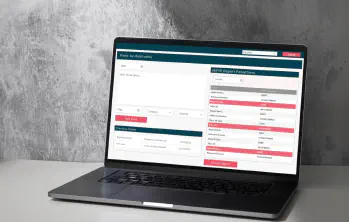Why brokers are embracing regulatory technology to streamline their transaction reporting
The landscape of broker trading is one of the most dynamic in the financial services sector. As a result of the evolving nature of their activity, they are increasingly drawing the attention of regulators.
Globally, the focus on transaction reporting has intensified, with regulatory bodies imposing stricter requirements to enhance transparency, market integrity, and investor protection. Transaction reporting by brokers, in particular, has come under greater scrutiny due to the dynamic outcomes they generate. In response, brokers are increasingly adopting regulatory technology to handle these complex reporting obligations with greater efficiency and accuracy.
The importance of transaction reporting for brokers
Transaction reporting is a critical component of regulatory compliance for brokers. Regulatory authorities such as the Financial Conduct Authority (FCA) in the UK and the European Securities and Markets Authority (ESMA) have implemented stringent rules under frameworks like MiFID II (Markets in Financial Instruments Directive II). These rules require brokers to report a vast array of transaction data, including trade details, client information, and execution specifics, often within very tight deadlines.
The complexity of these requirements can be overwhelming. For instance, MiFID II mandates that every trade must be reported within a specific timeframe, with accurate details on who made the trade, where, when, and how. Errors or delays in reporting can result in severe penalties, ranging from fines to licence revocations.
Transaction reporting technology solutions, like eflow’s TZTR, are playing an increasingly essential role in this context, as they offer sophisticated tools to automate and streamline the reporting process. These tools ensure that brokers can meet their regulatory obligations with precision, thereby reducing the risk of non-compliance and its associated consequences.
Automating data processing in transaction reporting
One of the primary benefits of technology in transaction reporting is its ability to automate the collection, processing, and submission of transaction data. Traditional reporting methods, which often involve manual data entry and checking, are not only time-consuming but also prone to human error. Even minor inaccuracies in reported data can lead to significant regulatory breaches.
By leveraging advanced technologies such as machine learning (ML) to automatically extract relevant data from trade records, validate it, and format it according to regulatory standards, firms can not only improve accuracy but also speed up their reporting process. This ensures that all transactions are reported accurately and completely within the required timelines.
Furthermore, platforms can integrate seamlessly with existing trading systems, allowing for real-time data capture and reporting. This capability is particularly crucial in the fast-paced world of broker trading, where transaction volumes are high, and the window for reporting is narrow.
Enhancing compliance integrity
Regulatory bodies set specific guidelines on how transaction reporting should be handled, including how trades are reported, managed, and why decisions are made. Brokers must therefore ensure that all details are tracked, maintained, and managed.
For instance, by implementing robust solutions like eflow’s, which offer automated and comprehensive audit trails that document every step of the reporting process, brokers can provide clear evidence of compliance during regulatory audits. This approach not only ensures adherence to regulatory requirements but also builds trust with clients and regulators.
The advantages of data enrichment
When conducting transaction reporting, one of the main benefits of using technology is data enrichment. This ensures the accuracy, completeness, and timeliness of data submitted to regulatory authorities.
By leveraging automated data enrichment from sources like eflow’s Market Data Store, which aggregates data from over 250 sources, brokers can enhance the quality of their transaction reports. This process integrates additional contextual information, such as market data, asset classifications, and reference data, which helps in accurately interpreting and validating transactions. Consequently, enriched data reduces the risk of non-compliance, minimises errors, and improves the overall efficiency of regulatory reporting processes.
Managing multi-jurisdictional reporting requirements
Brokers often operate across multiple jurisdictions, each with its own unique set of transaction reporting requirements. Managing these varied requirements can be challenging, particularly when regulations differ significantly between regions.
Designed to handle the complexity of multi-jurisdictional reporting, eflow’s TZTS system can be customised to meet the specific requirements of different regulatory bodies, ensuring that they remain compliant no matter where they operate. It will automatically adjust reporting protocols based on the jurisdiction in which a transaction occurs, streamlining the process and reducing the risk of errors.
This adaptability is crucial for those looking to expand their operations internationally, while maintaining compliance with all relevant regulations.
Future-proofing transaction reporting
The financial services industry is in a constant state of evolution, with new regulations and reporting standards emerging regularly. For brokers, staying ahead of these changes is essential to avoid compliance risks and maintain a competitive edge.
Adopting a technology solution not only addresses current transaction reporting challenges but also prepares brokers for future regulatory developments. For example, eflow’s TZTR system is designed to be scalable and adaptable, allowing firms to adapt their reporting seamlessly alongside new regulatory requirements. This flexibility ensures that brokers can continue to meet their obligations even as the regulatory landscape changes.
Explore how eflow’s TZTR Transaction Reporting solution could work for you
As regulatory authorities continue to tighten their requirements around transaction reporting, the adoption of regulatory technology is becoming increasingly critical for brokers.
By automating the reporting process, enhancing data security, and managing multi-jurisdictional compliance, technology solutions enable brokers to navigate the complexities of transaction reporting with greater ease and accuracy. In doing so, they not only ensure their ongoing compliance, but also position themselves for sustainable growth in an ever-evolving market.
eflow’s TZTR Transaction Reporting solution is specifically crafted to support firms in achieving these goals. Discover how it can benefit your firm by scheduling a free consultation with one of our experts.



